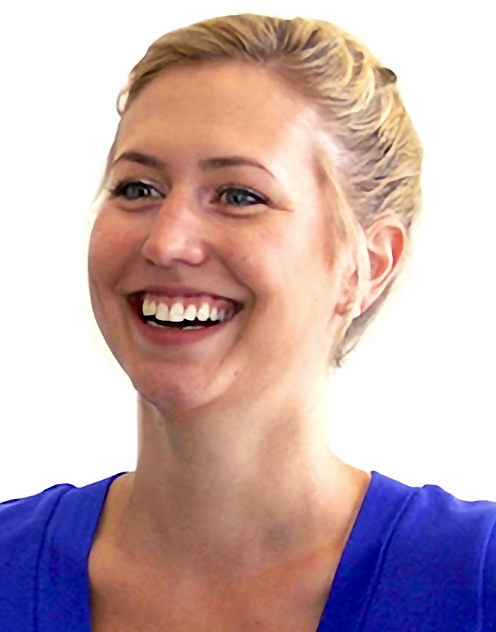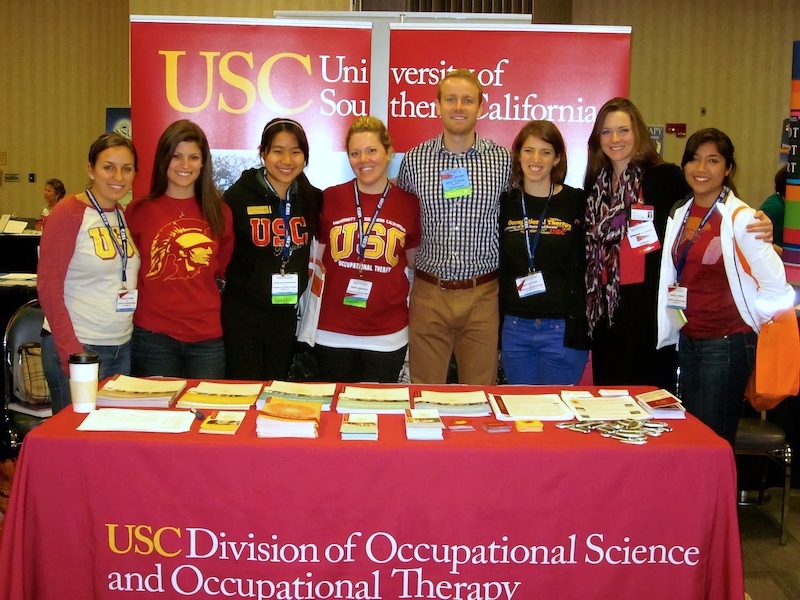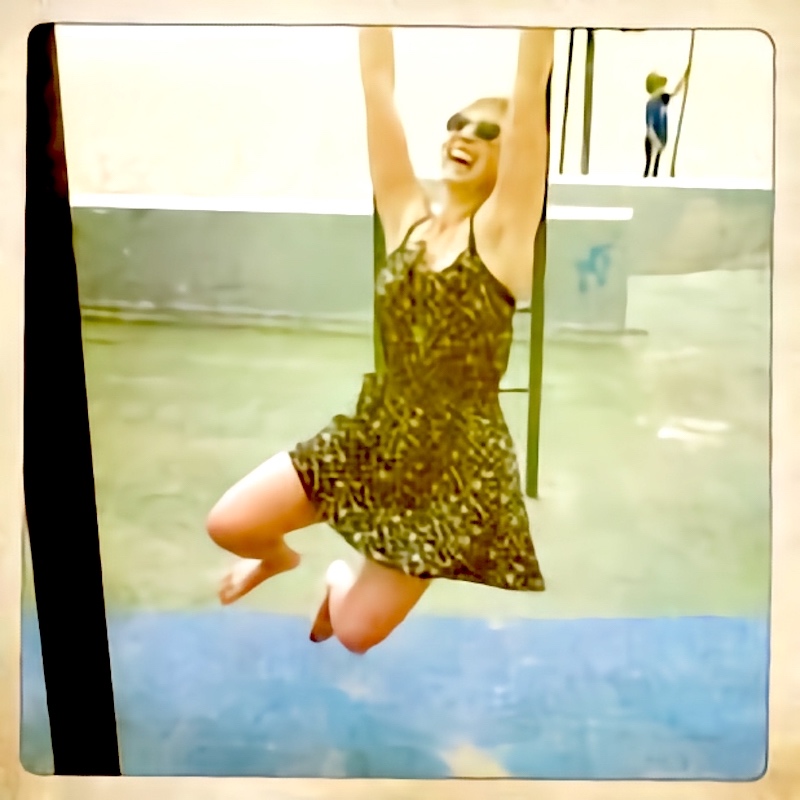Student Blog
Kendra

USC Represents ⟩
March 1, 2013, by Kendra
A HUGE congratulations to the 2 newest members of AOTA Assembly of Student Delegates!!
From a National Election, 2 USC Students have been elected:
Chairperson: Susan Linglebach
Communications & Advocacy Chairperson: Sean Sullivan

Go Trojans & Go USC OT!
⋯

Happy OTs ⟩
February 8, 2013, by Kendra
I have had the awesome opportunity to interview at a couple of incredible fieldwork sites this past week. And while these opportunities are definitely amazing and a dream, what makes me even more excited is the confidence I will have that where ever I choose to go, happy OTs will greet me when I’m there.
Did you know that OTs are some of the happiest professionals in the work place? Did you know that OT is one of the top ten degrees that pays you to play?
I love those statistics. And they are so true. When you walk into an OT clinic or OT rehab unit, you’re greeted with smiles. You see people working together with other therapists and actually ENJOYING what they do.
People this is RARE!
OT offers many, many things: job security, the feeling that you’ve helped change a life. But enjoyment? Fun? The pressure to get a good job is so high these days, you don’t often think to expect happiness throughout your career as well.
So as you make your decision about what career path you may take or whether or not choosing OT was the right choice, look at the mood of the OTs in that clinic, and when you see them laugh, smile, and share their joy, I think you’ll have the same feeling I did.
⋯

Try, try again ⟩
February 1, 2013, by Kendra
So many times when I write on this blog, I write about inspiring moments or epiphanies I’ve had about OT. And while the bulk of my time at USC has been filled with those exact experiences, sometimes I stumble. Sometimes I fail.
So in an effort to humble myself and let you readers (possible future students) know that school is about learning, I offer a teaching story for you.
Last summer I did my level II fieldwork at a sensory integration clinic. Part of my fieldwork required me to do a case study, using current research, to attempt an intervention with a child. I chose an adorable little boy with Autism, who was underweight and undernourished due to possible sensory issues, weak oral musculature, and picky eating habits. His parents were very eager for me to try something, anything to get their little boy eating again. I found several studies and had my intervention approved.
Three times a week for ten weeks I put little pieces of corn or peas or carrot into his chicken nuggets or pancakes with the hope that I was helping this boy improve his nutrition, muscle strength and preference for different foods.
It didn’t work. In fact at one point he wasn’t eating at all. By the end of my intervention we were not friends, every time he saw me he’d turn away. Meal time was NO FUN and even his social skills during group seemed to be declining.
Flash forward to my dysphagia class last night, and our professor is showing us multiple videos of feeding interventions with another little boy with very similar issues to the one I worked with this summer.
And I do not exaggerate, EVERYTHING she said to NOT DO during feeding I DID. I was humiliated, mortified, embarrassed, and laughing because I was seeing how epically my intervention had failed. There was no going around it, I bombed.
But this is the great thing about attending school and having many internships and mentorships before being released into the real world of therapy. I was never in danger of harming the boy, my actions were always supervised by a therapist, and by allowing me to fail I was still learning.
So remember, future students, that while you come to school to learn and succeed (and I know you want to be perfect) sometimes by failing you learn even more than you imagined.
⋯

Revelations in Lifestyle Redesign ⟩
January 23, 2013, by Kendra
During my Lifestyle Redesign class this morning, we were instructed to get into dyads and practice coaching techniques. The specific one we were working on involved asking the client to identify complaints and then assist them to reframe that complaint or area of struggle in a positive light and/or identify strategies to help combat that complaint.
Many sessions went like this:
OTS: What is an area of complaint for you?
Client: I am not getting enough sleep. I only slept two hours last night.
OTS: Wow, you must have a lot of important things going on in your life!
It seems simple, and perhaps silly, but the student that played the part of the client in this dyad remarked that she felt validated and the stress of having not slept was more bearable when she looked at it in a different light. It made her more interested and willing to hear what the OT had to say, and more receptive to identifying and making changes in her life.
Often times these simple strategies of, basically, just listening and affirming the client make a huge difference and create a positive relationship between the client and therapist. I loved it!
So what happened in my dyad you ask? Well mine went a little differently, but it was simply amazing!
OTS: What is an area of complaint for you?
Me: This new schedule is stressing me out, I feel like I’m not organized and don’t have a grasp on everything that’s expected of me.
OTS: That sounds stressful. What are some things you’re doing to deal with that stress?
Me: Well I feel better since yesterday when I bought binders and organizing materials.
OTS: Do you have a to-do list?
Me: Yes I do. In fact it’s right here, it has everything on it, and I take it everywhere I go.
OTS: So it seems that you’re doing really well dealing with the stress and you seem to already have a system that helps you manage everything.
Me: You’re right, I do!
OTS: You do! You’re doing great, just don’t forget you already know how to handle all this!
Crazy right!? I had the list on me! I wrote everything down, crossed things out, but when I was not actively doing that the stress of everything else burdened me so much I forgot I had already taken steps to get organized and stay on top of everything. Oh how blinding stress can be!
This just calls to mind how the job of an OT can vary from complex to simple but both are meaningful, important interactions that carry the potential to change the way a person views, and interacts with, life!
⋯

Beyond Ergonomics ⟩
January 16, 2013, by Kendra
And let the semester begin!!!
So far this week I have attended Motor Control, Ergonomics, and Lifestyle Redesign and they are all fascinating courses. I am especially excited about Ergonomics, aka ‘the science of work.’
When we think about Ergonomics, we typically think of having a computer workstation designed to best fit your body so as to limit repetitive stress fractures, carpal tunnel syndrome and many other work related chronic injuries.
And while this is a perfect example of Ergonomics, its application is in everything we do, every move we make.
What especially surprised me was our professor telling us how the disks between our vertebrae begin to deteriorate by our 30s. People this is crazy! I’m nearly 30 and determined to have a life filled with adventure and the freedom to move and explore the world as I see fit. As you can see below, sometimes I just have to play on the monkey bars, and it is MUCH harder when you’re adult sized, so I want to minimize my risks as much as possible.

Another thing that blew me away was how typical movement can negatively impact our body. Let me explain. We all know to ‘lift with your knees but not with your back’ but what we don’t consider is how simple movements like bending over to plug in your phone or twisting to reach a paper or high five a friend can damage your vertebral disks. The professor explained it further, that while these movements may be harmful we do them because it’s the most efficient form of movement. So how does one find a happy medium? The best answer is always, always exercise, diet, and be kind to your body.
I’ll keep you posted as I learn more!
⋯





